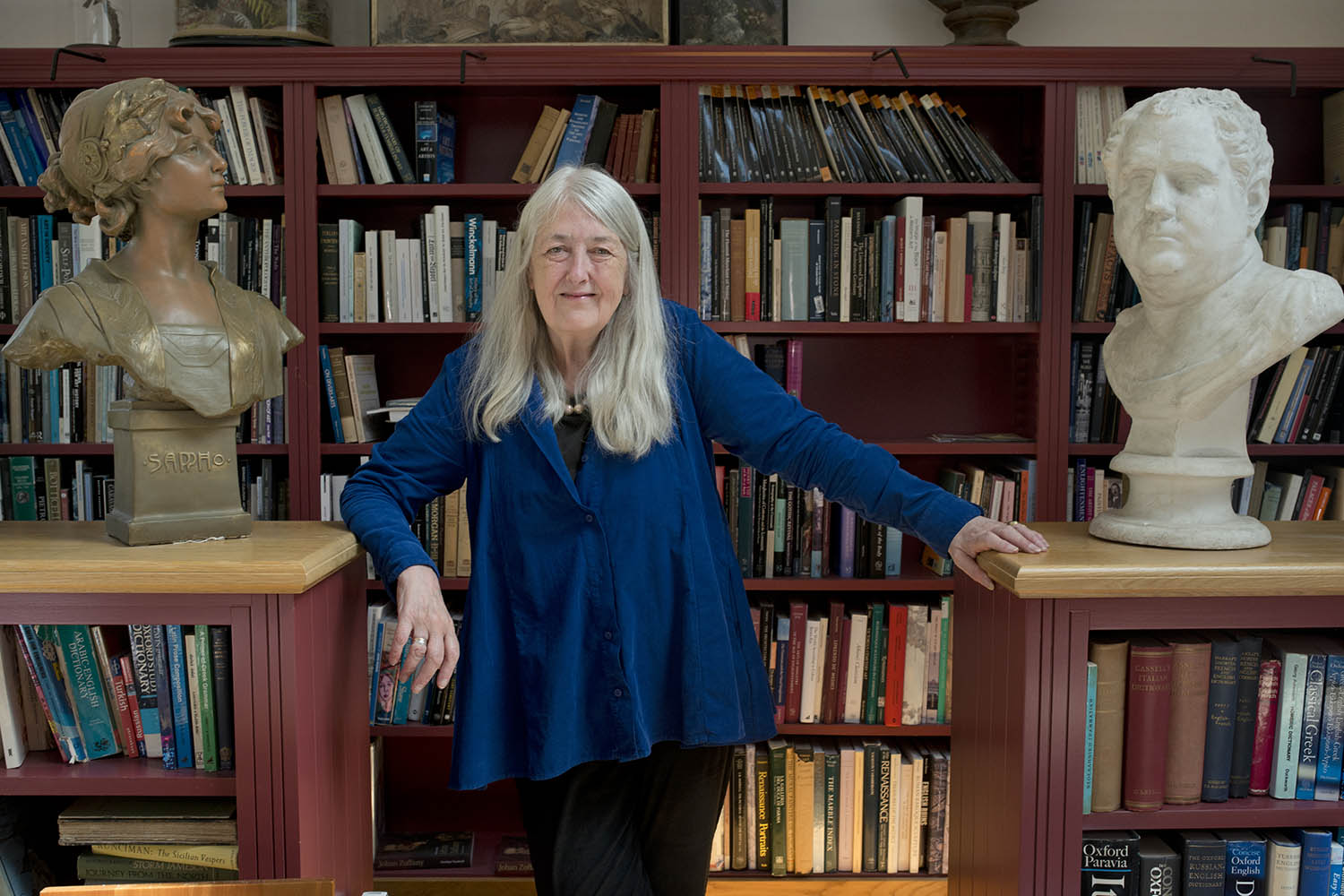“You go to a party and you say, ‘I’m a classicist,’ and it comes out: which Roman emperor is Donald Trump most like?”
“Yeah, I get that question a lot too!”
Mary Beard and Charlotte Higgins go to different parties from most of us. Which is good news, because it means that Instant Classics, their new podcast, is packed full of stuff we didn’t know. The show’s pitch is that you get to listen to two enormously informed experts enthusiastically chatting about the stuff that gets them excited, namely ancient Greece and Rome.
Episode one provides us with a couple of answers to that weird party question, as well as unpicking why it might be asked in the first place. Beard points to Trump’s home aesthetics – “all that tacky gold and bling”; Higgins mentions his portraits, “full of luminous power, like a statue”, and the constant praise he requires. “It reminds me of an imperial panegyric,” she says. “The poems written to flatter the emperors.” They discuss how Trump changes his mind all the time, how he wants to take over other countries. It’s fascinating.
The press blurb insists that Instant Classics is a visual show as well as an audio one, but I wouldn’t bother watching. A few whizzy graphics at the start soon give way to the unriveting double shot of two women in wood-lined recording booths awkwardly stealing glances at their offscreen notes. As an aside, within the podcasting world, “always on”, “twice a week” and “video” are the current rules to live by. So a chat-based podcast should be filmed, it should never have any time off, and there should be two episodes a week – the second usually shorter and made up of readers’ questions. Instant Classics is doing all this, but its pièce de résistance is its quirky second string: an Instant Classics book club that promises to consider only one book, Homer’s Odyssey. For weeks and weeks and weeks.
What do you mean, you don’t fancy it? Beard and Higgins’s huge enthusiasm and delight sold the whole thing to me. They’re going to spend the first episode on just the first 10 lines! They’ll be parsing a single word – polytropos – for ages! The pair sound much more at ease discussing the Odyssey than they do in the main opening episode, and the book club seems akin to a free weekly Oxford tutorial from two eccentric dons. I’m in.
Their huge enthusiasm and delight sold the whole thing to me. They’re going to spend the first episode on just the first 10 lines of the Odyssey!
Their huge enthusiasm and delight sold the whole thing to me. They’re going to spend the first episode on just the first 10 lines of the Odyssey!
Here’s some more eccentricity. The Mystic and the Mayor is an investigative true crime show about Agde, a French seaside town, and the shenanigans between Agde’s mayor of more than 20 years, Gilles d’Ettore, and a mystic, Sophia Martinez. A couple of years ago, the powerful D’Ettore consulted Martinez. He was mourning his father and she came highly recommended by – this seems odd – several police officers, among others. Anyway, when D’Ettore went to see Martinez for a mystical session, she relayed a message from D’Ettore’s dead dad. A couple of sessions later, objects moved across the room, and then – this is the part where I started snorting – D’Ettore started getting phone calls from a mysterious male voice called “Papa”, who said he was an angel and D’Ettore should “help” Martinez. And D’Ettore did.
Are you surprised to hear that Martinez is younger than D’Ettore and very beautiful and charismatic? Or that D’Ettore used Agde’s public funds to pay for holidays for Martinez, plus clothes, kitchen refits and her children’s education? Or that those “Papa” phone calls turn out not to be from an angel, nor indeed D’Ettore’s dead dad? Me neither.
Leo Schick is the investigative journalist here, and she’s done an excellent job. Her co-host is Anna Richardson, and over the six episodes Schick relays the story to Richardson, who knows nothing about the case but reacts as the tale unfolds. This technique wears thin: after a while, Richardson reminds you of a drunk interrupting someone else’s anecdote. However, without her this story is slight; intriguing, well-investigated but just one of your nuttier local council stories. D’Ettore and Martinez are awaiting trial, so there’s no proper ending. Schick has done brilliant work, but The Mystic and the Mayor could have been told in half the time, leaving us satisfied rather than irritated.
The series has the air of silly season about it, as does Evil Animals, Russell Kane’s spin-off from his successful comedy podcast Evil Genius. Evil Animals takes the show’s formula – evil or genius? – and applies it to animals, starting with the humble yet also horrible hamster.
Kane’s script is a hoot – “Is this creature a misunderstood marvel or a furry little psychopath?” – packed with jokes and information, and his guests, comedian Laura Smyth and zoologist Jules Howard, are great fun too. It’s impossible to resist. The show batters you into laughing, whether at Howard’s story of a hamster being dropped out of a window (it survived for months in the garden, like a teeny Bear Grylls) or at a listener’s contribution about housing three hamsters in one cage (it didn’t end well). To be honest, I prefer the animal version to Evil Genius. It’s sillier, and animal evilness is so much less distressing than anything humans get up to. A joy.
Photograph by Sophia Evans/the Observer
Newsletters
Choose the newsletters you want to receive
View more
For information about how The Observer protects your data, read our Privacy Policy

